In less than a week I’m getting evaluated for autism by a neurodiversity-affirming psychologist. But I’m already almost 100% sure I have it. I’m not 100% certain, but I’m pretty certain.
Whether they diagnose me formally (the DSM-5 system: 3/3 under criterion A and at least 2/4 under criterion B) is partly up to some subjective impressions and interpretations on behalf of the particular clinician. I reckon I could see two different psychologists and one would diagnose me with it and the other wouldn’t. That’s just how it is.
It’s OK if you are skeptical. When I started learning more about autism last year, I also was very skeptical and doubting. For example, a few months ago, I began reading Unmasking Autism and some early paragraphs made me think: I’m sure I don’t have autism.
But I just couldn’t let it go, so I kept sniffing around. And sniffing. And sniffing. I started connecting all these dots and gathering pretty convincing evidence from across my entire lifespan, going back to my earliest memories.
In terms of the boxes you need to tick to be diagnosed, Embrace Autism has decoded the DSM-5 autism criteria into what they actually mean for you in your daily life. (Unrelatedly, they also state: “70% of the [DSM] board members … have pharmacological industry ties. Many make A LOT of money through research grants and stock in the drugs used to treat the conditions described in the diagnostic manual.” This has been an ongoing thing for a long time. You always gotta follow the money.)
The pre-assessment notes (aka why I think I’m probably autistic)
In the neurodiversity-friendly Is This Autism?: A Companion Guide for Diagnosing, the authors comment that some adult clients turn up to the assessment already believing they are autistic after having done much research. Some provide pretty extensive notes, which is exactly what I’ve done.
After removing the sensitive info, I’m comfortable with sharing the notes I sent. It ended up being a 3,300-word piece after I added more to it, and the blue stuff at the bottom consists of additional thoughts that I didn’t send. So, now the entire thing is over 4,500 words. And this writing was originally on Psychreg, but I decided to move it to my own site for personal reasons. I’m housing the notes on my site in case I want to edit or remove them later.
They’re probably uninteresting for most people, but they cover:
- The experiences and thoughts of a female long diagnosed with “personality disorders” and why they looked to be assessed for autism.
- How someone’s thinking changed from “Hmm, I wonder if I just have a few mild autistic-like traits (which can be better explained by the broad autism phenotype) or have autism?” to “I’m almost entirely sure – like, 95% sure – that I have autism,” and pretty much self-identifying as autistic even before being evaluated.
- The specific bits of “evidence” that, collectively, seemed to strongly hint at autism, and also the reasons I thought I wasn’t autistic. Overall, why I’m pretty sure I have autism. And, yes, I know that to be diagnosed with a particular condition, the collection of traits should not be better explained by another diagnosable condition.
Here’s an extract from my notes:
So, I’ve reread the DSM-5 autism criteria and Is This Autism?: A Guide for Clinicians and Everyone Else. The latter is entirely devoted to translating the criteria and providing different examples of how real people can actually meet them. (I’d forgotten about that book – now I’m less confused!)
The authors focus on the less obvious presentations of autism. And, generally, females tend to internalise whereas males externalise more, so it’s helpful that the book includes quotes from so many autistics about their internal experiences.
The boxes you need to tick are a little different depending on whether the clinician uses the DSM-5 or ICD-11 system. I’m pretty sure they’ll use the DSM, so to be diagnosed, you need to meet the following criteria (they’re framed as deficits, which is unfortunate, but neurodiversity-affirming practices take more of a strengths-based perspective).
Also, the criteria can be met either currently or by history because autism is neurodevelopmental and you’re born with it.
Criterion A: Social communication and interaction challenges
- A1: Social and emotional reciprocity (translation: How neurotypical are your communications with others?)
- A2: Nonverbal social communication (translation: How neurotypical are your use and understanding of body language?)
- A3: Relationship management (translation: To what extent do points A1 and A2 impact your ability to have relationships?)
You need to tick the three. More accurately, the clinician needs to believe you tick the three.
Criterion B: Repetitive and restricted behaviours
- B1: Repetitive or idiosyncratic behaviours (translation: stimming)
- B2: Inflexibility (translation: sameness, routines, rituals)
- B3: “Restricted” interests that are intense or atypical (translation: special interests)
- B4: Sensory over- or under-sensitivity; atypical sensory preoccupations (translation: sensory differences)
Unlike criterion A, you only need 2/4. Therefore, you can still be autistic even without routines or sensory differences, for example.
Criteria C, D, and E are basically asking: Did these challenges begin in childhood? Do they affect your daily life? Are they not better explained by intellectual disability?
And another extract:
At the moment it’s looking like I might have autism. Whether it’s diagnosable is a somewhat subjective determination; it’s just a matter of if the psychologist believes I tick the five DSM-5 boxes under criteria A and B. (Under the ICD system, an individual doesn’t need to meet a specific minimum number of social/communication challenges or restricted/repetitive behaviours.)
Why do the assessment?
Self-diagnosis is accepted in certain circles, like much of the autistic community. So, if I have already done my research and sort of self-identified as a (low-support-needs) autistic, why bother going ahead with the (expensive) formal assessment? For three reasons:
- To get an official diagnosis so other people believe me. I will be fine if she comes to another conclusion too, but I am fairly confident that my suspicions are correct, and that she may think so too. And we all know that some individuals won’t ever believe you over a professional. But then again, some still won’t be convinced even with a formal diagnosis, especially if you don’t fit their image of what an “autistic person” looks like! (Not all autists are little white boys!)
- To figure out how the “personality disorders” (BPD, AvPD) stuff fits in with everything. Those labels were given over a decade ago, and I believe I probably don’t meet the criteria anymore. Maybe. And how does autism play into all that? In the disability justice space, many mention the harm caused by medical diagnoses and health practitioners.
- To talk at length about autism, because it has become a new interest. It’s pretty much a new special interest.
What does the process involve?
I didn’t go through a doctor’s referral process, as it wasn’t necessary and they probably wouldn’t believe me anyway. I searched for neurodiversity-affirming practices specifically. That’s highly recommended because the vast majority of psychologists don’t work from that theoretical framework. (When I brought up the possibility of autism with my former psychologist, they responded: “Or it could just be social anxiety.” So, you sometimes really gotta advocate for yourself.)
After filling out the intake form, they send specific tests based on your concerns and previous diagnoses. I’ve completed seven of those. Because of the greater awareness surrounding autism, there are often long wait times to get evaluated. For me, the assessment session will last for three hours, and then a few weeks later, there is a one-hour feedback session and they give you a report.
The satisfaction of linking my previous interweb writing with autism
Recovery: In my chat with Zoey Ka, we talked about recovery. “Will I ever recover?” I wondered to myself. “Recovery” can also put the blame on the individual. Why haven’t you recovered yet? What’s wrong with you? People can help you, but it’s up to you to get better!! Why have you been in and out of therapy, on and off medications, for 20 f*cking years and you’re still the same?
Well, I probably have the answer to that one now. Because there is no “recovery” from autism. Your brain circuitry is different at birth. The condition’s usually got a strong genetic basis (according to Spectrum News: “Girls … need a bigger genetic hit” to get autism). You live with it your whole life.
Strabismus: This piece I wrote on strabismus – obviously because I have it (inherited from a grandparent). So, the – unmedically reviewed, but derived from reputable sources, I promise – writing was just about the connections between strabismus, quality of life, and mental health conditions.
In my pre-evaluation notes, I added quotes from here, here, here, and here on the higher prevalence rates of vision problems and strabismus in autistic children. Anecdotally, a friend told me that her three autistic cousins all had strabismus as children. (Hmm, this is just a thought, but could there be some kind of strabismus–autism–mental-health link?)
Highly sensitive introvert: “Highly sensitive introvert” is a concept that some commentators believe can be code for low-support-needs autism (apparently, some of the individuals Aron based her observations on ended up being autistic). I do still think they are separate constructs and that you can be an HSP without meeting any of the autism criteria.
BPD: As many of us are well aware, often autistic females are misdiagnosed with BPD (or have both). The confusion can be due to things like identity diffusion caused by autistic masking and trying to be accepted by neurotypical society, emotional regulation troubles, impulsivity and aggression that can happen in autism, autistic meltdowns, rejection-sensitive dysphoria, low self-esteem, trauma and abuse histories, self-isolation, self-harm that can happen in both, etc.
Perfectionism and suicidality: This one on perfectionism and suicide. Autistic individuals sometimes have obsessively perfectionistic tendencies. They are also at increased risk for suicide and suicidality (for example, here and here).
Substance use disorders: According to research gathered by Embrace Autism, people with autism may be susceptible to addictions and substance use disorders.
Special interests: In the video journal piece, I remember I mentioned something like: I’m sure we all have those topics that we want to talk about at length but nobody else is interested. Special interests? The freedom to info-dump in a safe space where nobody’s judging you?
Adverse childhood experiences: In Is This Autism?: A Guide for Clinicians and Everyone Else, the authors write that autistics are more likely to experience adverse childhood experiences (ACEs).
I’m not 100% sure if I’m autistic. But I’m pretty sure. And, as I said before, I was skeptical when I started learning more about autism.
Do you think you might be autistic? Were you diagnosed with autism as an adult?
Share your experiences with our safe and supportive neurodiversity community in the comments below.
Originally published on Psychreg.
Monique Moate is a late-diagnosed autistic woman whose interest in autism spectrum disorder and disability stems from a lived-experience viewpoint. She enjoys the written word and thinking about how people use language.

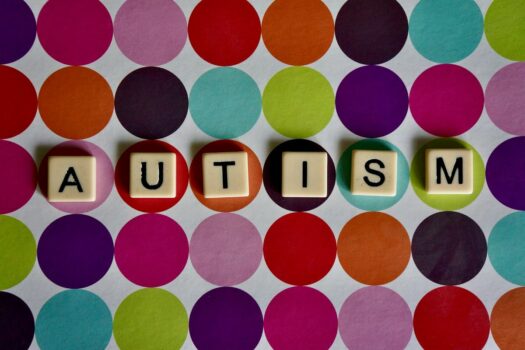



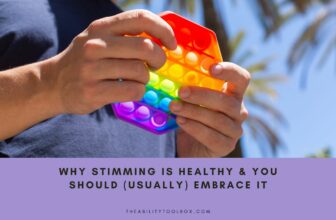
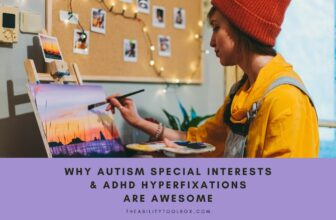
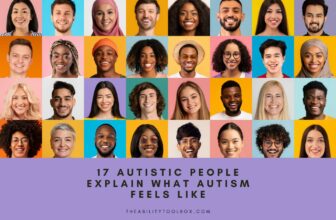
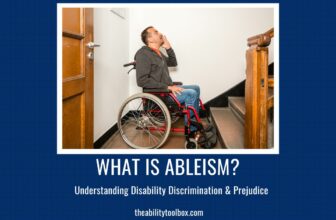
Start the discussion at community.theabilitytoolbox.com